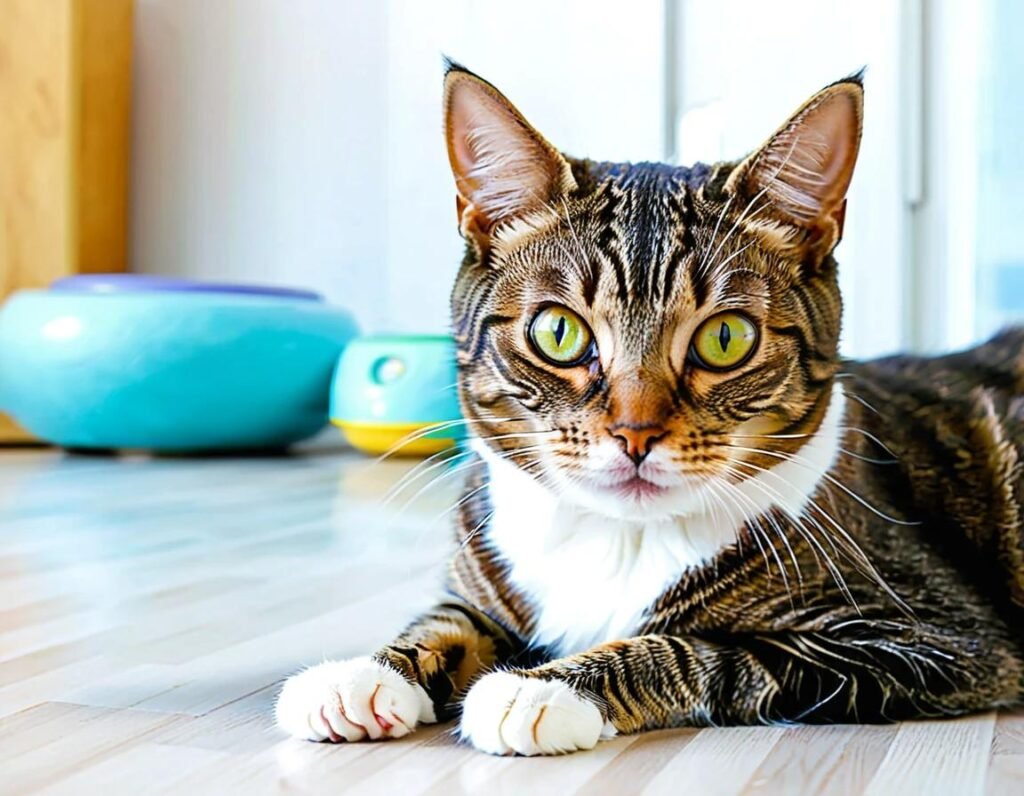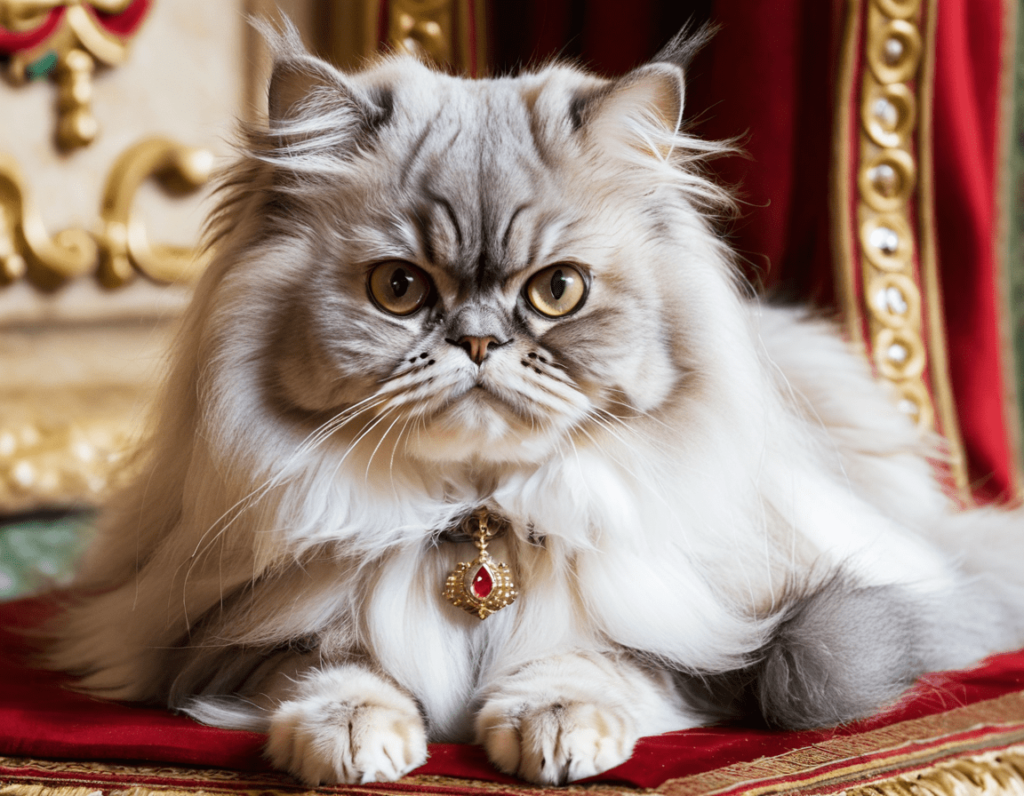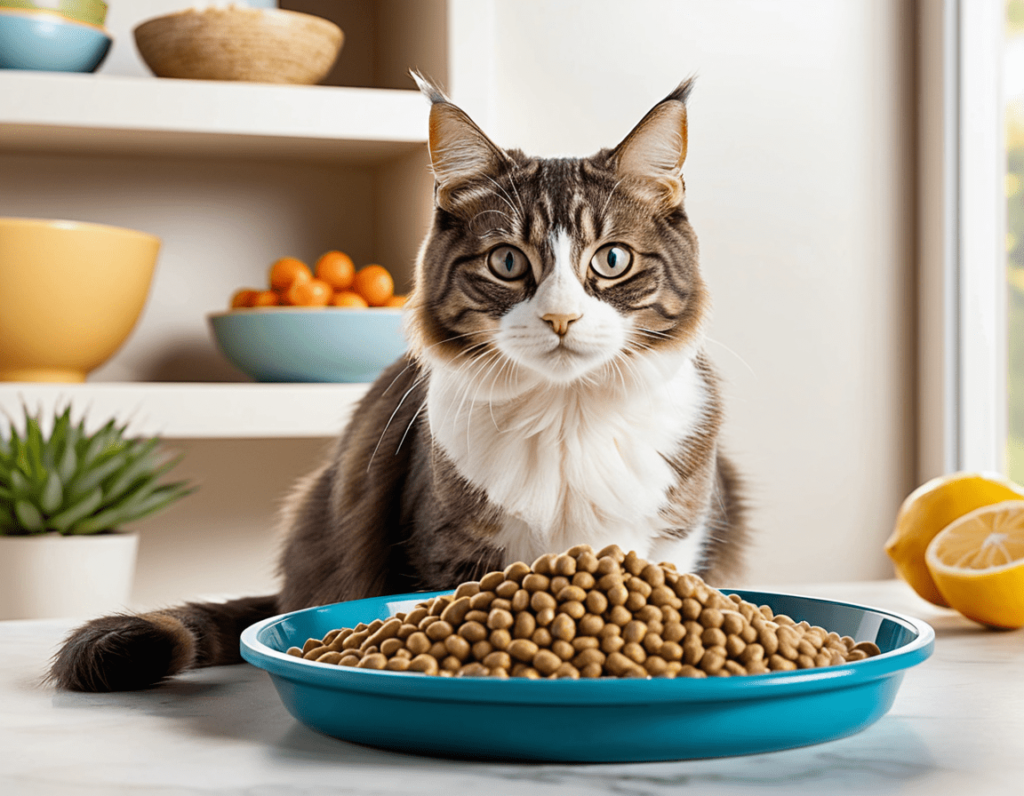
Just like humans, cats age and go through changes as they enter their senior years. While some might start to slow down, others could become even more quirky than they were in their younger days (because we all know that cats can never fully be “normal”). But just because your cat’s getting older doesn’t mean they can’t continue to live a happy, healthy life. With the right care, you can make sure your senior kitty feels comfortable and continues to rule the household with their regal, and sometimes very dramatic, presence.
In this article, we’ll dive into some senior cat care tips that’ll keep your cat living their best (and possibly slightly more grumpy) life.
What is a Senior Cat?
First, let’s define what qualifies as a senior cat. Typically, cats are considered seniors when they reach the age of 7 years or older. However, this can vary slightly depending on the cat’s breed, size, and overall health. If your cat is starting to show a few more gray hairs (or fur that’s a little less sleek), it may be time to shift into senior cat care mode.
1. Regular Vet Check-ups: Preventative Care is Key
As cats age, they become more susceptible to health issues like arthritis, kidney disease, dental problems, and more. That’s why regular vet visits are more important than ever. Senior cats should have a check-up at least once a year, though some may need more frequent visits.
A vet will monitor their overall health, check for any underlying conditions, and can offer preventative solutions to help your senior cat stay comfortable. Don’t be surprised if your cat gives the vet a side-eye during these visits (they do not like being poked and prodded), but trust me—it’s all for their own good!
2. Diet: More Than Just the “Fancy Feast”
As your cat ages, their nutritional needs may change. Senior cats may need a diet that’s lower in calories but higher in certain nutrients, like protein, fiber, and omega-3 fatty acids to support joint health and keep their coat shiny. Look for senior cat food formulas that are specifically designed to meet the needs of aging felines.
Also, if your senior cat is getting picky about their food (which they probably will), consider mixing in some tasty treats or wet food to keep things exciting. After all, they’ve earned the right to be a little fussy, right? You’ve been serving them the same kibble for years—they’ve seen and tasted it all!
3. Exercise and Play: Keep Those Paws Moving
While your senior cat might not be sprinting up the stairs as fast as they used to (and might prefer a nap on the couch instead of chasing a feather toy), they still need some exercise to stay healthy. Regular, gentle playtime can help keep their muscles and joints active, preventing stiffness and keeping them at a healthy weight.
If your senior cat isn’t as into the high-energy games of their younger years, try something slower, like tossing a treat for them to chase, or use interactive toys that engage their hunting instincts without requiring a marathon.
And, let’s be real: senior cats are often experts in the art of cat naps, and we should all strive to live like them!
4. Keep Their Space Comfortable: Aging Cats Need Cozy Spots
As cats age, they may develop arthritis, so providing comfortable resting spots for your senior cat is essential. Consider getting them a soft orthopedic cat bed that provides extra support for their joints. Also, make sure their favorite lounging spots are easily accessible—avoid high shelves or places that require jumping, as it can be tough on aging joints.
Think of it as creating a spa day for your cat, except instead of a massage, they’ll just lie there and demand pets while giving you a look that says, “I’m too old for this nonsense.”
5. Grooming: Less Hair, More Maintenance
As your cat ages, they may not groom themselves as efficiently as they used to. While some senior cats still keep their fur pristine, others might need a little extra help with brushing. Brushing your cat regularly can prevent matting, reduce hairballs, and allow you to spot any skin issues or lumps early.
In some cases, senior cats may lose interest in grooming altogether. If your cat is shedding more than usual or has a dull coat, it’s a good idea to check in with your vet to rule out any health issues.
6. Hydration: Older Cats Need More Water
Did you know that senior cats are more prone to dehydration, which can contribute to kidney problems? Make sure your cat always has fresh, clean water available, and consider switching to wet food if they aren’t drinking enough. Some cats are just picky about their water sources, so try multiple water bowls in different areas of the house or even invest in a cat water fountain (because apparently, cats prefer their water to flow like a fancy little river).
7. Monitoring Behaviour: Is Your Senior Cat Acting Weird?
It’s common for senior cats to show some changes in behavior as they age. Maybe they’re less active, or they might get a bit grumpier (hey, we all get that way). But if you notice any sudden behavioral shifts, like increased irritability, excessive meowing, or difficulty using the litter box, it might be a sign of an underlying health issue.
Remember, your cat’s well-being is directly tied to their comfort, so don’t ignore signs that something might be wrong. A simple change in their behavior might be a cry for help—or, in the case of the grumpy old cat who’s trying to get more treats, a subtle demand for more snacks.
8. Extra Love: Senior Cats Need Extra TLC
Aging cats tend to get a little more needy when it comes to affection. Whether they just want to be near you or demand attention at odd hours, senior cats love a little extra TLC. Be prepared for more cuddle time, more purring, and of course, more naps on your lap.

Conclusion: Aging with Grace (and Some Sass!)
Taking care of your senior cat is all about patience, love, and providing the right environment to help them thrive in their golden years. Cats may get older, but they certainly don’t lose their sense of self-importance. Give them the care they deserve, and they’ll continue to be the spoiled little rulers of your home for many years to come.
Bonus Tip: Don’t Forget About Dental Health
While you might be focused on your senior cat’s joints or coat, dental health is just as important as they age. Cats are prone to gum disease and tooth decay, which can lead to pain and other serious health issues. Regular dental checkups and cleaning are essential for older cats. Your vet might recommend a professional cleaning or provide you with tips on how to brush your cat’s teeth at home. If that sounds like an impossible task, just know that even a few attempts are better than nothing!
If your senior cat is suffering from bad breath (more than usual) or you notice they’re reluctant to eat their favorite hard food, a trip to the vet is probably in order. After all, we don’t want our senior cats to develop a “cat-titude” over a toothache!
Create a Senior Cat-Friendly Environment
As cats grow older, they often experience changes in vision or hearing. Their surroundings should be adapted to their new needs. For example:
- Non-slip rugs or carpets can help prevent falls if your cat’s coordination is off.
- Low-sided litter boxes make it easier for them to climb in and out.
- Comfortable resting spots with easy access to food and water.
Even though they might be a little slower and less spry, senior cats are still independent little creatures who like to have control over their space. And let’s face it, they still have that royal attitude, no matter how old they get!
Takeaway: A Happy, Healthy Senior Cat
With a little extra effort, patience, and love, your senior cat can continue to live a comfortable, happy life. They may slow down, but they’re still the same quirky, lovable creatures who always know how to steal your heart (and maybe even your spot on the couch).
Remember, aging is inevitable, but with senior cat care, your furry friend can enjoy their golden years with plenty of comfort, affection, and dignity. Keep their health in check, provide a cozy living space, and continue to spoil them—you know they love it.
FAQs About Senior Cat Care
Caring for a senior cat comes with its own set of challenges, but with the right tips and a little extra attention, you can ensure your aging feline remains comfortable and happy. Here are some common questions (and answers!) about senior cat care to help guide you through the process:
1. What age is considered "senior" for a cat?
Answer: Cats are generally considered seniors once they reach 7 years old. However, this can vary depending on the breed and overall health. Some cats may age slower and remain active well into their teens, while others may show signs of aging earlier.
2. How can I tell if my cat is in pain due to aging?
Answer: Senior cats may experience pain due to conditions like arthritis, dental problems, or other health issues. Look for signs like:
- Difficulty jumping or climbing stairs
- Licking or chewing at specific areas of the body
- Less interest in playtime or movement
- Changes in posture or difficulty walking If you suspect your cat is in pain, a visit to the vet is a good idea.
3. Should I change my cat’s diet as they age?
Answer: Yes, senior cats have different nutritional needs than younger cats. They may benefit from diets that are:
- Lower in calories to prevent obesity
- Rich in protein to maintain muscle mass
- High in omega-3 fatty acids to support joint health Your vet can recommend the best senior cat food for your feline, and consider wet food if your cat struggles with hydration.

4. How often should I take my senior cat to the vet?
Answer: As your cat ages, it’s important to increase the frequency of vet visits. Ideally, annual check-ups should be scheduled, but some senior cats may need bi-annual visits to monitor their health more closely. Regular check-ups can help detect issues like kidney disease, arthritis, or dental problems early.
5. What are the signs of a healthy senior cat?
Answer: Signs of a healthy senior cat include:
- A good appetite
- Maintaining a healthy weight
- Being alert, but still enjoying naps (after all, they are cats!)
- Regular, easy-to-use litter box habits If your cat is showing signs of physical discomfort, loss of appetite, or changes in behavior, it may be time to consult your vet.
6. How can I help my senior cat with mobility issues?
Answer: As cats age, they may experience joint pain or stiffness, especially in the hips or spine. To help with mobility:
- Provide low-sided litter boxes for easier access
- Invest in an orthopedic cat bed for comfort
- Place ramps or steps near their favorite spots (like the couch or bed)
- Consider joint supplements or medication as recommended by your vet
7. Can senior cats still play?
Answer: Yes, senior cats can still enjoy playtime, though they may not be as active as they once were. Consider gentle play activities like rolling a ball slowly, interactive toys, or using laser pointers (in moderation). Keep sessions short and fun—your cat will still enjoy the bonding time, even if their energy is a bit more limited.
8. Should I worry about my senior cat’s dental health?
Answer: Yes! Senior cats are prone to dental problems like gum disease or tooth decay. It’s important to regularly check your cat’s teeth for signs of buildup, bad breath, or difficulty eating. Your vet may recommend professional cleanings or provide tips on how to brush your cat’s teeth at home.
9. How do I monitor my senior cat’s weight?
Answer: Obesity is a common issue in senior cats. Keeping track of your cat’s weight is essential to ensuring they remain healthy. Weigh them regularly and adjust their food intake if they’re gaining or losing weight unexpectedly. If your cat is having trouble maintaining a healthy weight, consult your vet for advice.
10. Does my senior cat need more hydration?
Answer: As cats age, they can become more prone to dehydration. Make sure your senior cat always has access to fresh water. If your cat isn’t drinking enough, consider adding wet food to their diet or investing in a cat water fountain, which can encourage them to drink more.
11. Can my senior cat live a long, happy life?
Answer: Absolutely! With proper care, attention, and regular vet check-ups, senior cats can live well into their late teens or even early twenties. Many senior cats continue to be affectionate, playful, and full of personality well into their golden years—just like the kittens they once were!
12. What should I do if my senior cat is acting differently?
Answer: If your senior cat starts showing signs of behavior changes—such as increased aggression, confusion, excessive vocalizing, or inappropriate elimination—it could be a sign of underlying health issues like dementia, pain, or kidney problems. It’s important to talk to your vet to rule out medical causes and find the best solution for your cat.
Conclusion: Loving Your Senior Cat
Your senior cat may not be the sprightly kitten they once were, but they’re still a beloved part of the family. With some extra attention, the right diet, and plenty of love, your senior kitty can enjoy a long, healthy, and happy life. Keep up with their vet visits, provide them with a comfy living space, and don’t forget to spoil them a little bit—they’ve certainly earned it!


